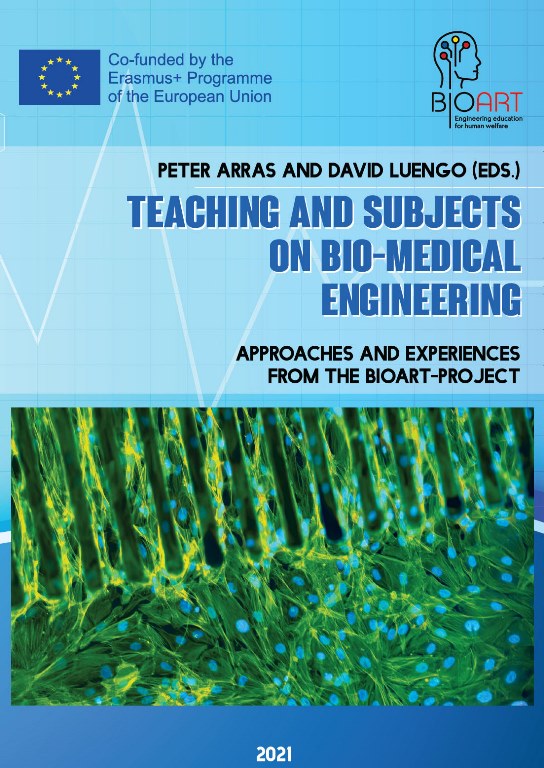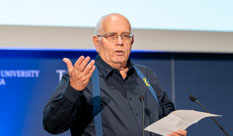More:
News & Stories
New book about the BIOART, includes chapters by Dr. Bardea and Dr. Benis
The book Teaching and subjects on bio-medical engineering -
Approaches and experiences from the Bio-Art project,
edited by Peter Arras (KU Leuven, Belgium) and David Luengo (Universidad Politécnica de Madrid (UPM), Spain), includes a collection of chapters on various topics related to the teaching of bioengineering, which were written by scientists from several higher education institutions, all partners in the Bio-Art project.
Among them are Dr. Amos Bardea, Head of the Bachelor's Degree Program in Electrical and Electronics Engineering and Project Coordinator at HIT, and Dr. Arriel Benis from the Faculty of Industrial Engineering and Technology Management and the Faculty of Digital Medical Technologies.

Dr. Bardea and Dr. Arriel Benis serve as co-editors in the book and in addition have each published a chapter related to their specialization. Dr. Bardea's chapter deals with electronic signals of biological sensors, while Dr. Benis' chapter deals with teaching in the fields of IT systems health and digital medicine.
BIOART (Innovative Multidisciplinary Curriculum in Artificial Implants for Bio-Engineering B.Sc./M.Sc. Degrees) is a multinational and multidisciplinary project that builds international capabilities in developing up-to-date curricula in the fields of bioengineering in higher education. The project was funded under the EU's ERASMUS + program with a budget of almost one million Euros for three years. BIOART brings together European partners from 13 different higher education institutions from Spain, Belgium, Poland, Austria, Ukraine and Israel. The partners share expertise in biomedical engineering that includes many areas such as: biocompatible materials, biomedical signal processing, biological sensors, and more.
HIT is one of the partner institutions in the project, which received a grant of 90,000 Euros for 3 years thanks to the initiative of Professor Yosef Ben Ezra, Dean of the Faculty of Engineering.
As part of the project, an artificial intelligence laboratory was built and equipment was purchased for the hybrid man-machine interface laboratory, headed by Dr.Ronen Sosnik. Dr. Dror Lederman and Dr. Ronen Sosnik developed 3 courses that are taught at HIT. Materials developed at HIT and the partner institutions, including the book, can be used in academic institutions of the European Union by faculty members in existing courses and further ones in the future.
Learn more about the project | Project website
Posted: 24/05/2021
- News & Events
New Collaboration with Sheba Medical Center will qualify nurses to work in a digital environment.
Collaboration between HIT Holon Institute of Technology, the teaching authority of the Sheba Medical Center, and the Sheba-BEYOND virtual hospital will allow training nurses in Israel and around the world to work in a digital...



 Additional programs
Additional programs
